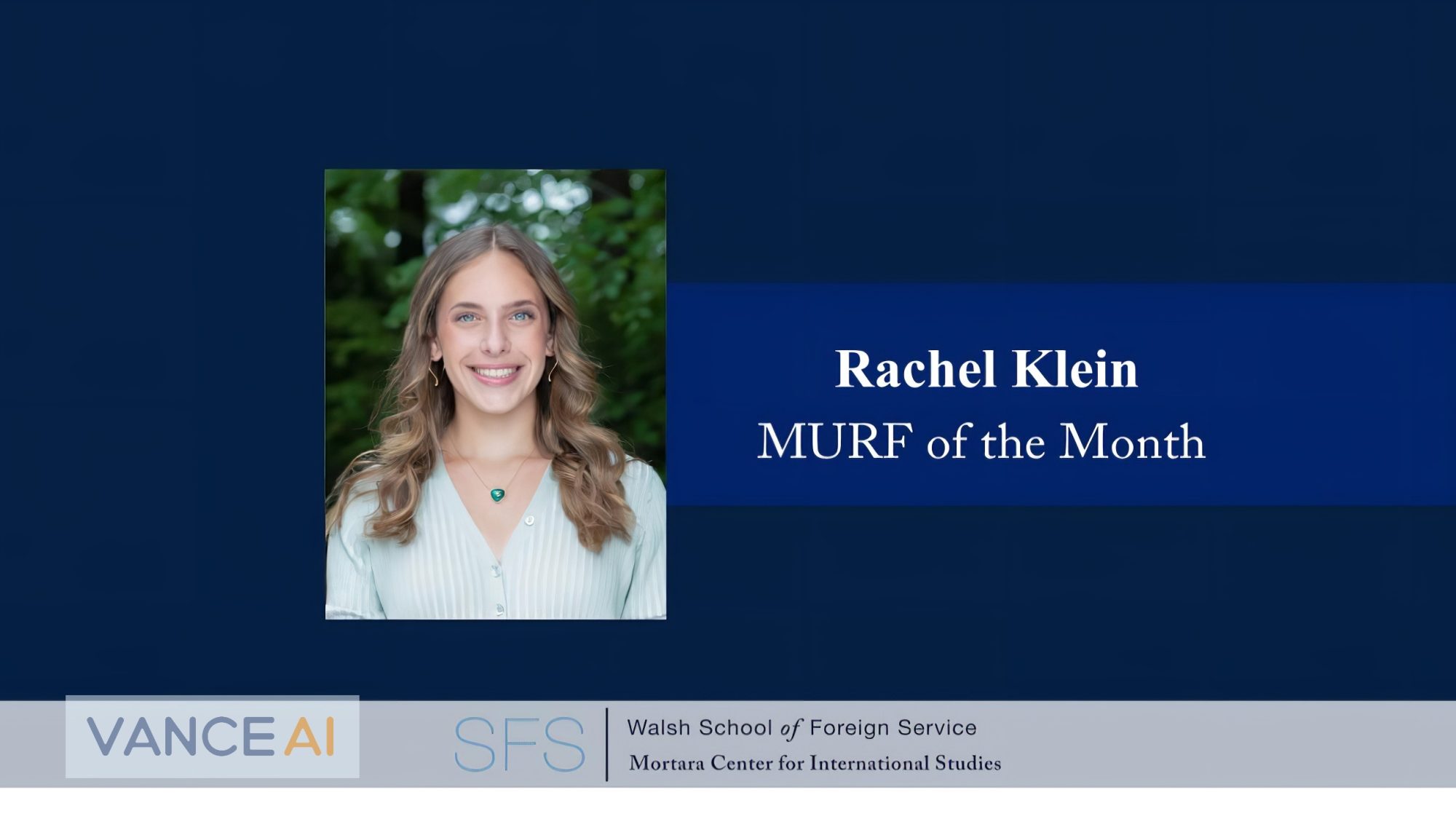The Mortara Undergraduate Research Fellows (MURF) program is a four-year research apprenticeship for undergraduate School of Foreign Service (SFS) students with the goal of empowering students as generators, not just consumers, of knowledge. Fellows are selected during their first year at Georgetown and paired with a faculty mentor to gain hands-on experience as a research assistant and learn the necessary skills to carry out their own independent research in their third and fourth years.
Each month, in an effort to share the inspiring stories and impressive accomplishments of these young scholars, the Mortara Center team selects a MURF of the Month to feature.
November’s MURF of the month is Rachel Klein. Rachel Klein is a sophomore in the SFS majoring in International Political Economy and minoring in Spanish and Justice and Peace Studies. As a MURF, she assists Dr. Ding’s research regarding international trade and developing economies.
Read on to learn more about Rachel and her experiences as a MURF through her answers to our MURF of the Month questions.
What is your favorite part about being a MURF?
My favorite part about being a MURF, beyond getting to develop my own skills and work on research in areas that interest me, is getting to develop these skills alongside other MURFs who are conducting research in their own fields. Learning how to navigate academic research among a cohort of intellectually curious and hardworking peers who share similar ambitions but also share similar challenges.
What is one memory or project that stands out from your time as a MURF?
Because my cohort of MURFs joined the program over zoom, the first time we all met in person at the Mortara Center. Dr. Newman was my proseminar professor, so meeting him alongside all of the other sophomore MURFs and upper classmen MURFs made the experience much more tangible moving into the in-person fall semester. I found myself appreciating the MURF community much more, now that I could work with my peers and mentor face to face.
What is one particularly helpful piece of advice you’ve received or skill you’ve learned working with your faculty partner?
I have learned that crafting a research question is a far more labor-intensive, thoughtful, and intentional process than I had first thought. A research question is what sets up the entire project, and with a misguided or unfocused question, research design, processes, and ultimately deriving conclusions from that study may not be as impactful as you would’ve hoped.
How have your interests and/or aspirations changed or developed during your time as a MURF?
When I first came to Georgetown, I knew I wanted to learn more about the way political institutions interact with the international economy— specifical neoliberal models of global capitalism and globalization. However, I’ve learned that I want to specifically study international development, understanding the ways in which development work can empower individuals, alleviate poverty, and challenge oppressive structures and forces in an increasingly globalized international economy.
What is one thing (internship/student organization/community service project/artistic or athletic activity) other than the MURF program that you’ve been involved with during your time at Georgetown? How has it impacted you or your work as a MURF?
I’m an Under-Secretary-General for Georgetown’s high school Model United Nations Conference, NAIMUN. Alongside my Co-USG for the Economic and Social Councils organ, I have edited and synthesized about 200 pages of research for educational guides published to delegates around the world on issues ranging from Indigenous Rights and International Aid in the Southern Cone to Overfishing and Resource Management in the Pacific. Working with so many other Georgetown students passionate about international relations and diplomacy education, for what will ultimately become a conference for 3,000 high schoolers, constantly reminds me why providing opportunities to youth is one of the most valuable endeavors anyone in their field can pick up alongside their other work.
What fictional character would you be best friends with in real life?
I would be friends with Donna Pinciotti from That 70s Show! I like to think we are similar, and I know she would make me laugh.
